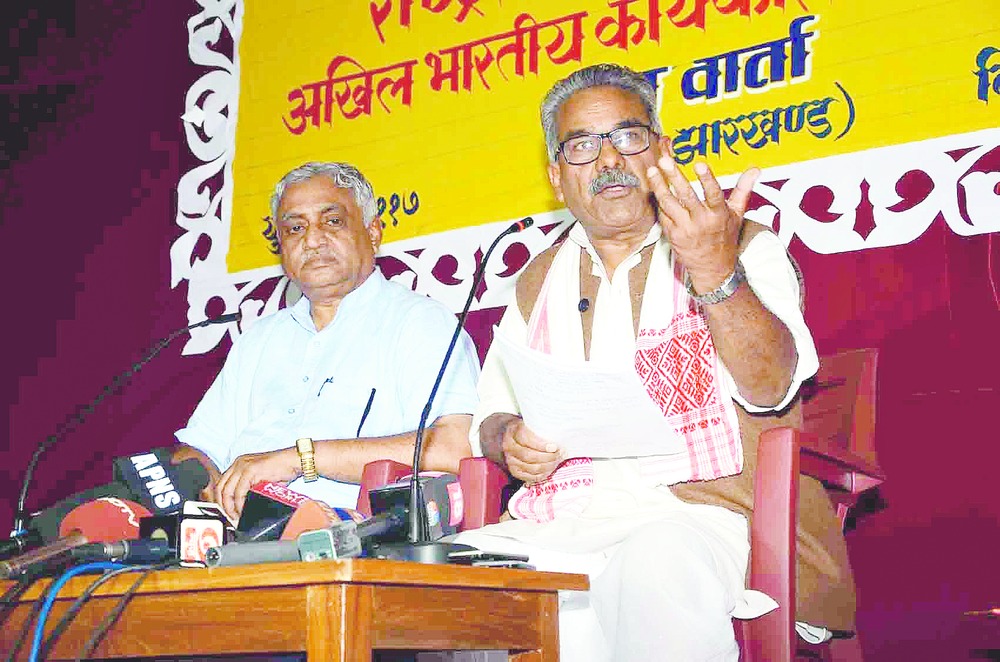
The RSS called on the Modi government to draft a national population policy that would apply uniformly to all the citizens and redress the "problem of demographic imbalance".
A resolution passed today at the Sangh's "Akhil Bharatiya Karyakarani Mandal", or all-India executive committee meeting at Ranchi, drew attention to the religious data contained in the 2011 Census report and it concluded that it necessitated an immediate review of the population policy.
"Vast differences in growth rates of different religious groups, infiltration and conversions, resulting in religious imbalance of the population ratio...may emerge as a threat to the unity, integrity and cultural identity of the country," the resolution claimed.
It said the "threat" was greater in the border areas of Assam, Bengal and Bihar. "The rate of growth in Muslim population has been much higher than the national average (in these areas), indicating unabated infiltration from Bangladesh," warned the document.
It noted that though India was among the first in the world to announce a population plan in 1952, it was only in 2000 that the government set up a population commission that went on to draft a "comprehensive" population policy.
The resolution maintained that the policy had intended to achieve a "stable but healthy population" by 2045 by optimising the fertility rate to an "ideal" figure of 2.1 total fertility rate. "It was expected that this aim is in accordance with our national resources and expected future requirements, it would be uniformly applied to all sections of society," it said.
However, the census data, it said, indicated that both the total fertility rate as well as the child ratio was "uneven across religions". "This is reflected in the fact that the share of population of religions of Bharatiya origin (Hindus, Sikhs, Buddhists and Jains), which was 88 per cent, has come down to 83.8 per cent while the Muslim number, which was 9.8 per cent, has risen to 14.23 percent during the period 1951-2011," the resolution said.
The RSS claimed the "religious" demographic "imbalance" had "assumed serious proportions". It cited the example of Arunachal Pradesh, where quoting figures, it said the people of "religions of Bharatiya origin" were 99.21 per cent in 1951 but that figure, it added, was down to 81.3 percent in 2001 and 67 per cent in 2011.
The Sangh contended that the Christian population in Arunachal had grown by "almost 13 percentage points".
According to the 2011 Census, Christians formed 30.26 per cent of Arunachal, followed by Hindus at 20.04 per cent, "others" (comprising adherents of the Donyi-Polo animistic faith) at 26.2 per cent and Buddhists at 11.76 per cent.
The Sangh used the data to allege that the "rise" in the Christian population indicated an "organised and targeted religious conversion activity by some vested interests".
The RSS's second demand was to draw a national citizens' register to stem the "illegal infiltration" from across the border and prevent the "infiltrators" from acquiring citizenship rights and buying land.











